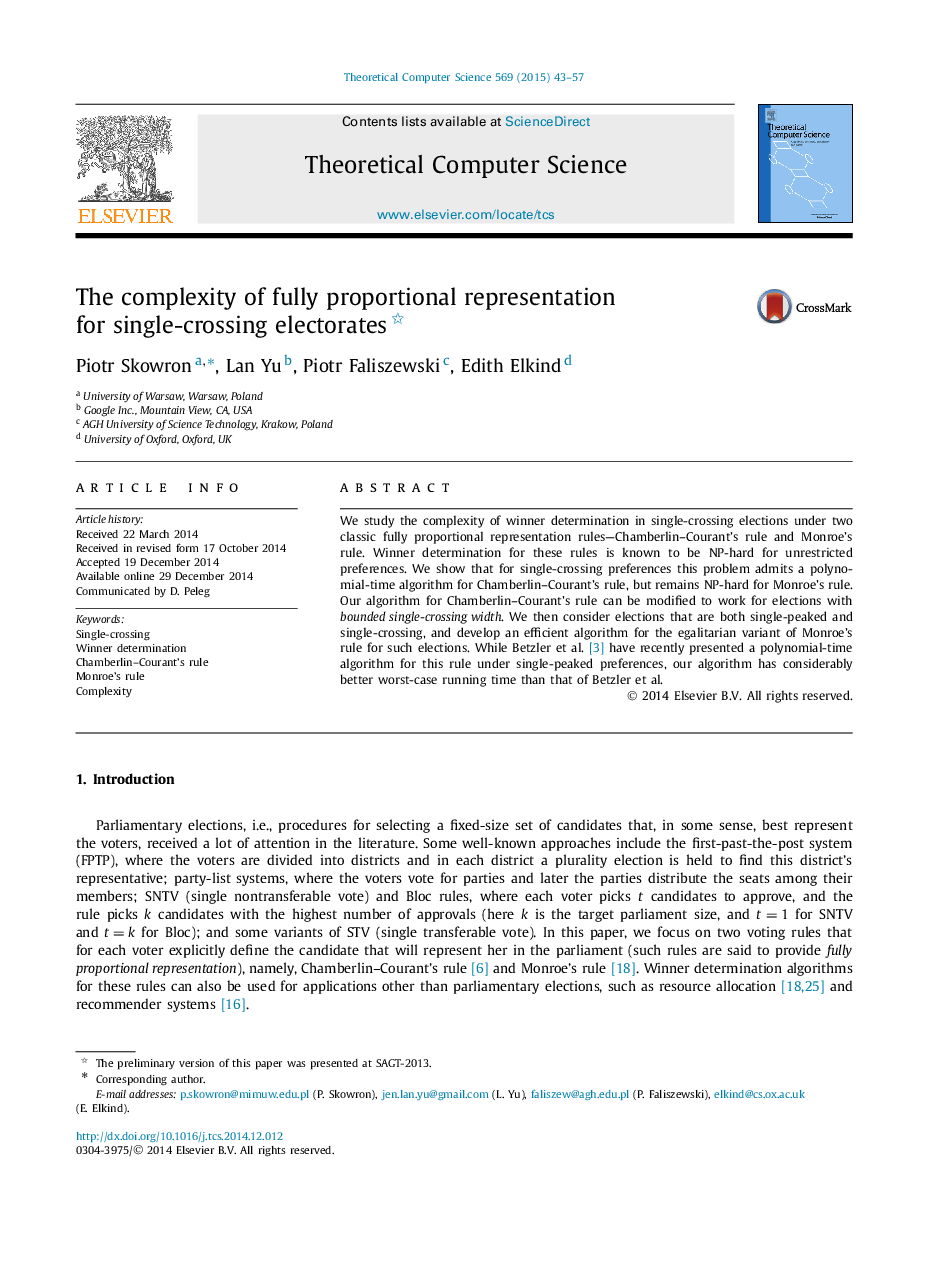| Article ID | Journal | Published Year | Pages | File Type |
|---|---|---|---|---|
| 436027 | Theoretical Computer Science | 2015 | 15 Pages |
We study the complexity of winner determination in single-crossing elections under two classic fully proportional representation rules—Chamberlin–Courant's rule and Monroe's rule. Winner determination for these rules is known to be NP-hard for unrestricted preferences. We show that for single-crossing preferences this problem admits a polynomial-time algorithm for Chamberlin–Courant's rule, but remains NP-hard for Monroe's rule. Our algorithm for Chamberlin–Courant's rule can be modified to work for elections with bounded single-crossing width. We then consider elections that are both single-peaked and single-crossing, and develop an efficient algorithm for the egalitarian variant of Monroe's rule for such elections. While Betzler et al. [3] have recently presented a polynomial-time algorithm for this rule under single-peaked preferences, our algorithm has considerably better worst-case running time than that of Betzler et al.
